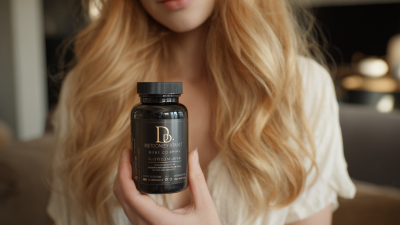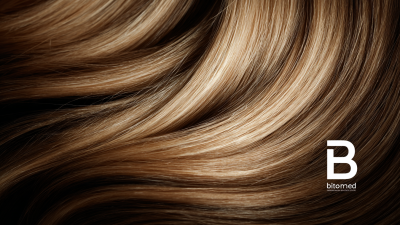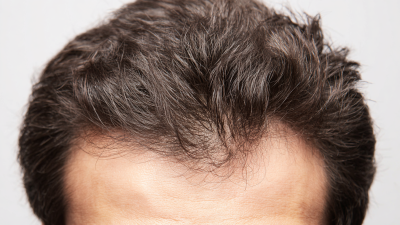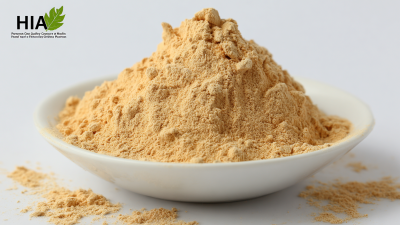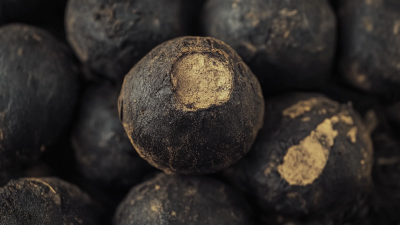
-
Home
-
Products
-
About US
-
FAQ
-
News
-
Tips
-
Contact Us
Leave Your Message
- Phone
- E-mail
- WhatsApp
- WA Business



In today's fast-paced world, many individuals are seeking effective solutions to enhance their hair growth, and one of the most popular options is the Biotin dietary supplement hair enthusiasts are raving about. Biotin, a vital B-vitamin, plays a crucial role in maintaining healthy hair, skin, and nails, making it a go-to supplement for those looking to improve their hair's overall condition.

With numerous strategies available for maximizing the benefits of biotin, it can be overwhelming to navigate the best practices. This blog will explore top tips for integrating biotin into your daily routine effectively, ensuring you not only support hair growth but also promote overall vitality.
Whether you’re struggling with thinning hair or simply seeking to fortify your locks, understanding how to utilize Biotin dietary supplements can make a significant difference in achieving your hair goals.
Biotin, also known as vitamin H, has long been praised for its vital role in promoting hair growth. This water-soluble vitamin is essential for keratin production, a key protein that makes up hair strands. Research has shown that biotin deficiency can lead to hair thinning and loss, making supplementation a popular choice for those seeking to enhance their mane. Integrating biotin dietary supplements into your routine may help to improve hair strength, making it less prone to breakage, while potentially stimulating new growth.
While biotin is important, it's essential to recognize the role of other nutrients in hair health. For instance, vitamin D has recently gained attention for its potential benefits in reversing hair loss, particularly in cases like alopecia areata. Alongside iron and protein, these vitamins work synergistically to nourish follicles and support overall hair vitality. Therefore, a holistic approach to hair health, which includes a balanced diet and a careful selection of supplements, could yield the best results for those looking to enhance their hair growth journey.
This chart illustrates the correlation between various dosages of Biotin supplements and hair growth rates measured in millimeters per month. As the dosage increases, there is a noticeable improvement in hair growth, highlighting the effectiveness of Biotin in enhancing hair growth.
When it comes to choosing the right biotin supplement for enhancing hair growth, there are several factors to consider. First, it's essential to determine the dosage that aligns with your specific needs. Biotin typically comes in various strengths, from 1,000 to 10,000 mcg per serving. If you're looking to address mild hair thinning, a lower dosage might suffice. However, those dealing with more significant hair loss or stronger thinning may benefit from higher doses. It's always advisable to consult with a healthcare professional to find the appropriate dosage tailored to your unique circumstances.

Another critical aspect is the form of biotin supplement you prefer. Biotin is available in various formats, including capsules, gummies, and liquid drops. Gummies may be more appealing for those who dislike swallowing pills, but be mindful of added sugars and calories. On the other hand, capsules provide a direct way to consume biotin without any unnecessary additives. It's also important to check for additional ingredients in the supplement. Some products blend biotin with vitamins and minerals known to support hair health, such as zinc and vitamin E, enhancing the overall efficacy of your hair growth regimen. By focusing on these elements, you can select a biotin supplement that effectively meets your hair growth goals.
Incorporating biotin into your daily routine can significantly enhance hair growth and improve overall hair health. Biotin, also known as vitamin B7, is essential for the synthesis of keratin, a key protein that makes up hair, skin, and nails. According to a report from the International Journal of Trichology, a biotin deficiency can lead to hair thinning and loss, making supplementation vital for those struggling with hair growth issues. The recommended daily allowance (RDA) for biotin is 30 micrograms for adults, but many hair growth supplements contain higher doses that can yield even better results.
To effectively incorporate biotin into your routine, consider starting your day with a biotin-rich breakfast. Foods like eggs, nuts, and whole grains can provide a natural source of biotin, but for those seeking a concentrated boost, biotin supplements can be more effective. A study published in the Journal of Cosmetic Dermatology found that participants who took biotin supplements experienced a 25% increase in hair growth after three months. Additionally, integrating biotin into your dietary regimen alongside other vitamins, such as vitamin E and zinc, can synergistically support hair health and improve follicle function.
| Strategy | Recommended Dosage (mg/day) | Expected Benefits | Timeframe for Results | Additional Nutrients |
|---|---|---|---|---|
| Daily Biotin Supplementation | 30-500 | Promotes healthy hair growth and reduces hair loss | 3-6 months | Zinc, Selenium |
| Combining with Hair Oils | N/A | Enhances scalp health and improves absorption | Immediate | Vitamin E, Coconut Oil |
| Balanced Diet | N/A | Provides essential vitamins and minerals for healthy hair | 1-3 months | Biotin, Iron, Omega-3 |
| Stress Management Techniques | N/A | Prevents stress-induced hair loss | Variable | Magnesium, B-vitamins |
| Regular Scalp Massages | N/A | Increases circulation for better nutrient delivery | Immediate to 1 month | N/A |
Biotin, a B-vitamin often touted for its role in hair health, can yield even greater benefits when combined with other essential nutrients. For example, pairing biotin with zinc can enhance keratin production, a protein crucial for strong hair. Zinc not only helps to stabilize the hair structure but also plays a role in repairing damaged follicles, promoting an environment conducive to growth. Additionally, incorporating omega-3 fatty acids can further support scalp health by reducing inflammation and providing hydration, which is vital for optimal hair growth.
Another powerful combination involves biotin and vitamins A and E. Vitamin A is essential for cell growth, and it helps in the production of sebum, which keeps hair from drying out. Coupled with vitamin E’s antioxidant properties, this duo can help protect hair follicles from oxidative stress, thus fostering healthier hair. By adopting a multifaceted approach through these nutrient combinations, individuals can maximize their hair growth potential and achieve luscious locks more effectively.

Incorporating biotin supplements into your routine can significantly enhance hair growth, but supporting lifestyle habits are equally vital. A balanced diet rich in proteins, vitamins, and minerals plays a crucial role in maintaining healthy hair. Dietitians emphasize that nutrients like biotin, vitamin D, and omega-3 fatty acids are fundamental for hair health. Foods such as eggs, nuts, fatty fish, and leafy greens not only nourish hair follicles but also promote overall scalp health, which is essential for optimal hair growth.
Tips for supporting hair growth include staying hydrated, as dehydration can impact hair strength and appearance. Additionally, managing stress through mindfulness practices is important; high stress is linked to hair loss. Incorporating regular scalp massages can also stimulate blood circulation, enhancing nutrient delivery to hair follicles.
Finally, maintaining a consistent hair care routine is key. Experts suggest washing your hair regularly to keep the scalp clean and free of excess oils, which can clog hair follicles. Be mindful of hair styling practices that may cause damage, and opt for gentle, nourishing products to ensure your hair remains healthy and vibrant.

